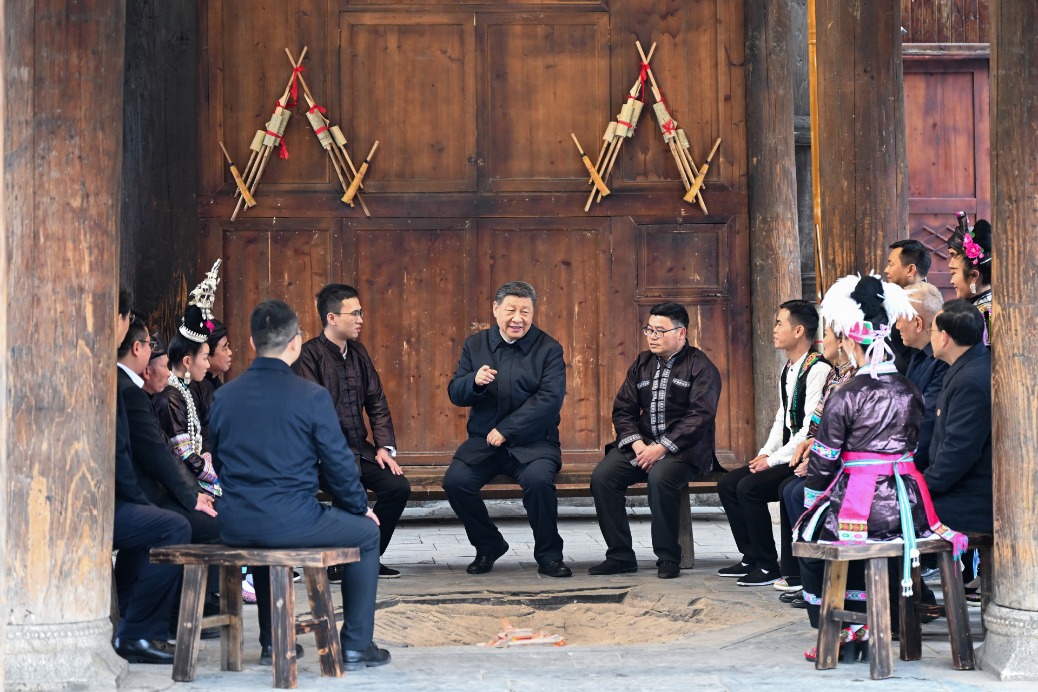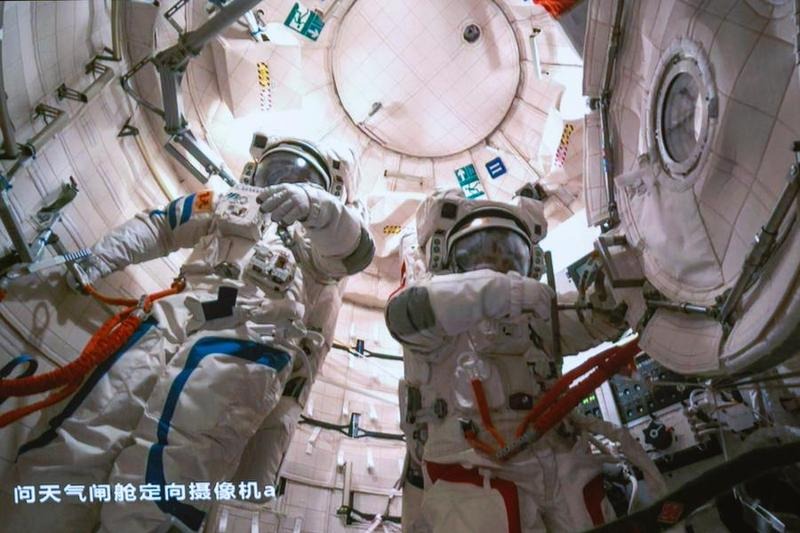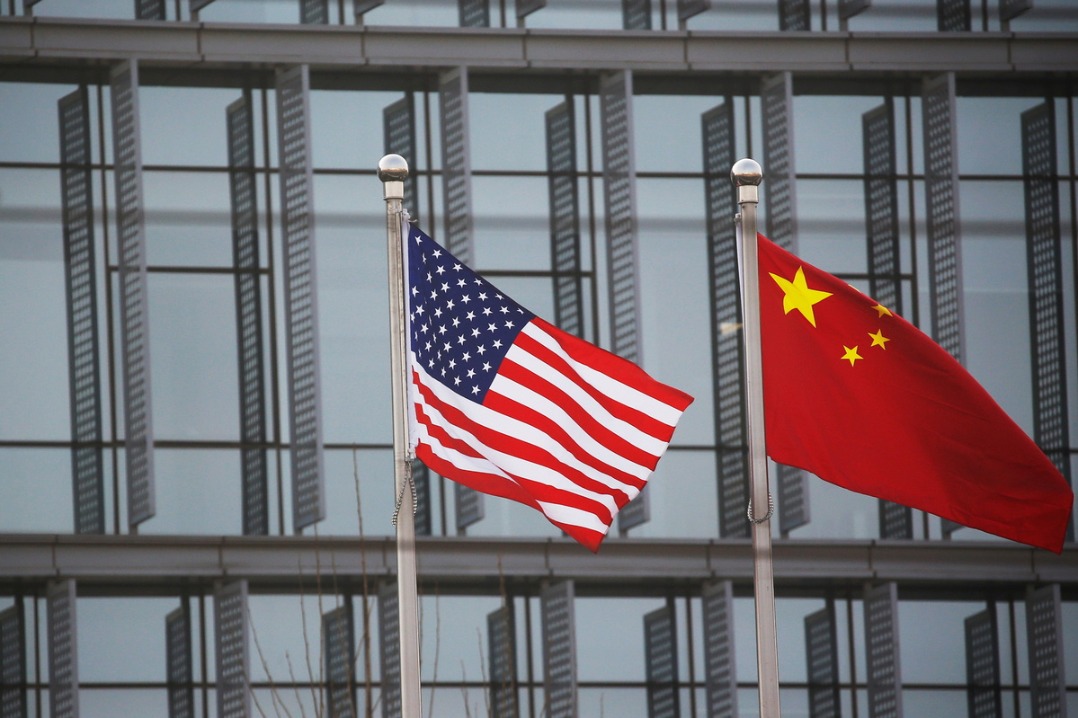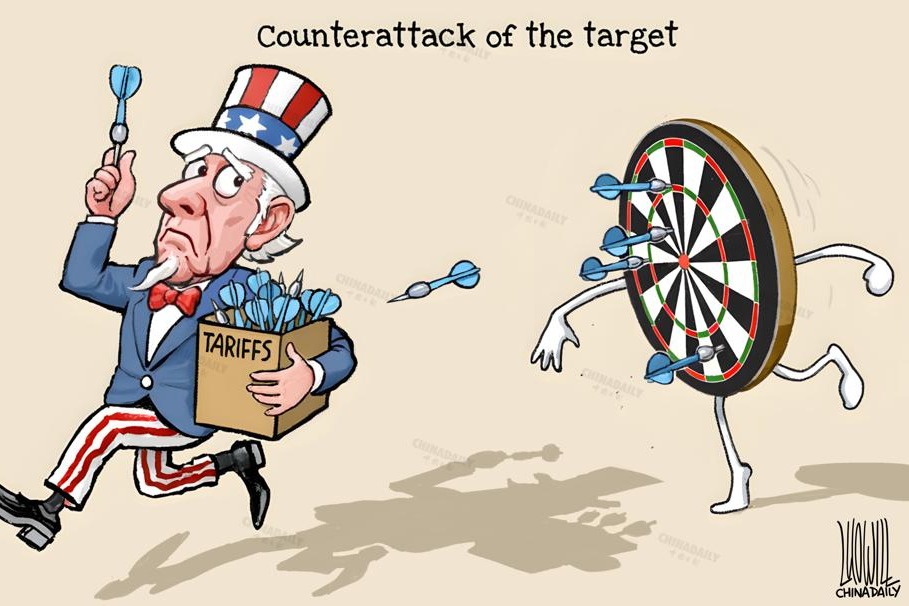Can VP candidate Tim Walz bring sanity to US' China policy?


There have been heated debates over the past few days on whether Tim Walz, whom Democratic presidential candidate Kamala Harris has chosen as her running mate, can help the incumbent US vice-president win the 2024 presidential election on Nov 5.
One of the debates has focused on Walz's "China experience". After graduating from Chadron State College in Nebraska in 1989, Walz taught for a year at Foshan No 1 High School in Guangdong province under a program organized by WorldTeach, a US nonprofit organization.
From the 1990s to 2003, he and his wife Gwen operated "Educational Travel Adventures" which organized summer educational tours to China for high school students. Walz has visited China some 30 times, and speaks some Chinese.
While Walz is said to be a critic of China for its "human rights record", as a congressman, he told the news media in 2016 that "I don't fall into the category that China necessarily needs to be an adversarial relationship… Two of the world's great superpowers, there are many collaborative things we can do together. I am hopeful on that."
Sadly, such words are considered politically incorrect today in the US, where every politician is trying to prove he or she is the greatest critic of China regardless of how ignorant or absurd he/she may sound. Therefore, it is no surprise that some Republicans have already used Walz's old comments to portray him as being soft on China.
China has been a favorite bogeyman in the US, especially during election campaigns, for decades.
Since he has visited China about 30 times and spent a year teaching in a school in Foshan, Walz knows more about China than most US politicians and is capable of making more rational and informed decisions on US-China relations.
However, whether the 60-year-old will remain cool-headed and still base his thinking on facts or kowtow to the huge China-bashing pressure is a big question.
What will Walz say about China when he debates Republican vice-presidential candidate J.D. Vance, whose wife, Usha, too, taught in China at the Sun Yat-sen University in Guangzhou, Guangdong province, as a Yale-China Teaching Fellow.
Vance once said that "the Chinese have a foreign policy of building roads and bridges and feeding poor people". But just days after becoming Donald Trump's running mate, he called China the biggest threat to the US.
I hope Walz does not join the race to the bottom in Washington's China bashing. I also hope he helps bring the most consequential bilateral relationship of the 21st century back on track. After all, Sino-US relations will decide whether our generation and the future generations will live in peace and prosperity or engage in a new Cold War marked by divided political blocs.
I hope the debate on China during the rest of the 2024 US presidential race is based on facts and reasoning instead of being marred by ignorance, hysteria and sometimes racism.
Walz was right when he said that there are many collaborative things China and the US should work on together, because the world cannot tackle key global issues, from climate change, pandemics and nuclear non-proliferation to global governance, global development and regional conflicts, without the collaboration between China and the US.
The rest of the world hopes China and the US resume their cooperative relationship instead of engaging in confrontations. The world also hopes the US stops playing zero-sum games.
I was part of a great fellowship program based at Macalester College in Minnesota in 1998 where I made many good friends, including with the farmers with whom I stayed in Minneota, a small city of only 1,200 people at the time.
And I hope Walz, the Minnesota governor, helps bring sanity to Washington when it comes to the US' policy toward China and helps reverse the trend of deteriorating bilateral relations. That is a daunting task, and should be a wake-up call for all US politicians.
The author is chief of China Daily EU Bureau based in Brussels.
chenweihua@chinadaily.com.cn


































